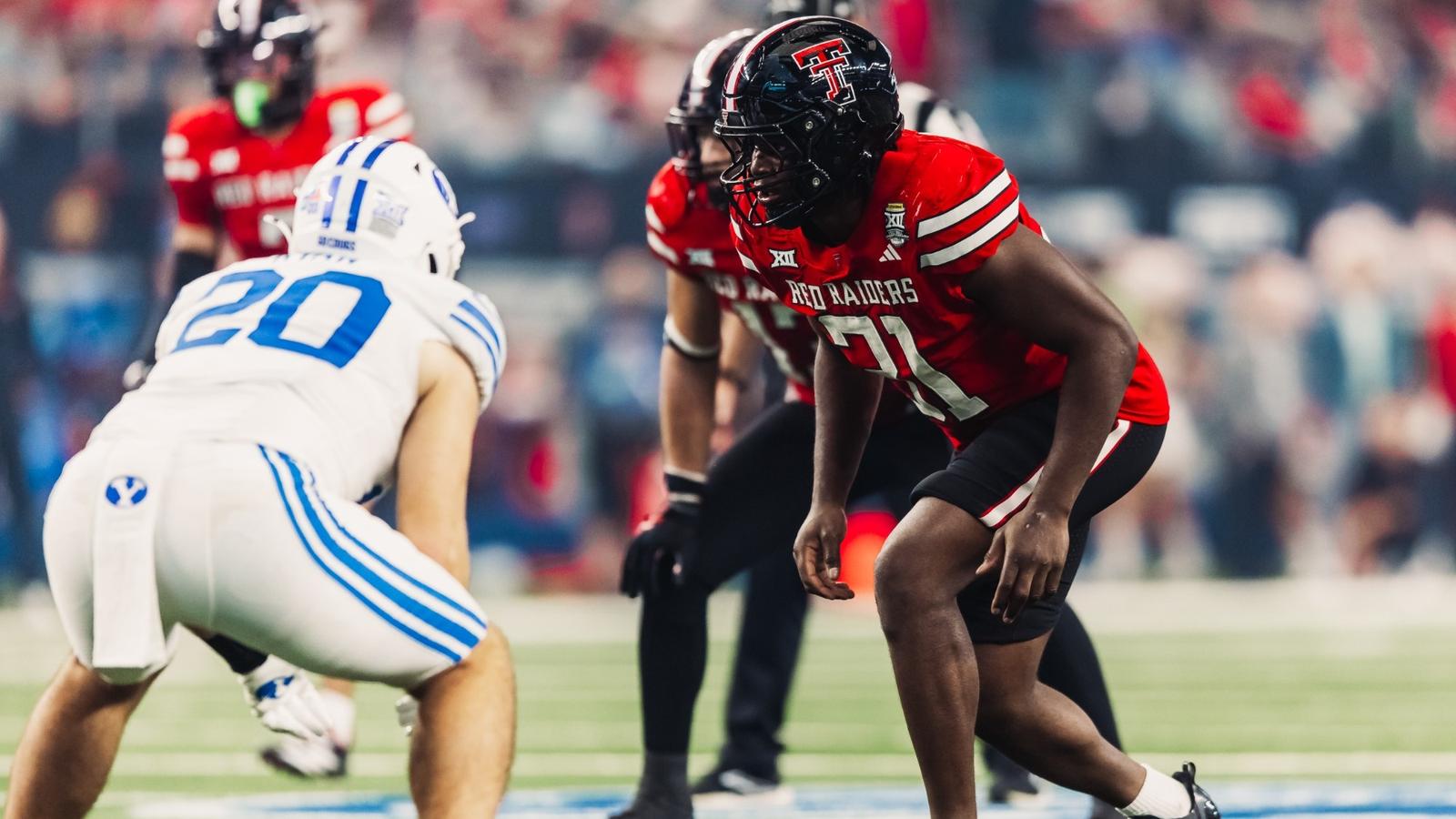NIL
SixFour3 to Open First Maryland Location



SixFour3, a premier fastpitch softball training brand, has signed a franchise agreement to open its first Maryland location, with plans underway to establish the facility in either Montgomery or Howard County. The announcement follows the recent opening of SixFour3 Richmond in Virginia.
Per SixFour3: “SixFour3, the premier brand for female fastpitch athletes, is proud to announce two major milestones: the grand opening of SixFour3 Richmond at 9003 Old Staples Mill Road, Suite B, in partnership with franchisees Darrell and Megan Kent and professional softball star Odicci Alexander, and the signing of a new franchise agreement with Robbie and Wendy Underhill to develop the first SixFour3 location in Maryland.
The opening of SixFour3 Richmond marks a significant step forward for the SixFour3 brand. This state-of-the-art facility is the first to feature SF3 Studio — a female-only fitness membership program designed to empower athletes of all ages through strength, conditioning, and overall wellness. By integrating premier softball training with holistic fitness offerings, the Richmond location sets a new standard for athlete development and community engagement.
“We are thrilled to bring SixFour3 to the Richmond community,” said franchisee Darrell Kent. “Our mission is to create a home for softball athletes where they can train, grow, and belong. Partnering with Odicci Alexander, who is an inspiration both on and off the field, makes this even more special.”
Odicci Alexander, a standout professional pitcher and role model within the sport, added, “I’m excited to help build something that will have a lasting impact on young female athletes. SixFour3 Richmond is more than just a training center — it’s a place where players can believe in themselves and push their limits.”
In another major expansion milestone, SixFour3 has signed a franchise agreement with Robbie and Wendy Underhill to bring the brand to Maryland for the first time. The Underhills are exploring location opportunities in the greater Montgomery/Howard Counties. The Underhills’ SixFour3 location will deliver the same elite training environment, expert instruction, and commitment to athlete development that has made the brand a rising force in softball nationwide.
“We are excited to welcome Robbie and Wendy to the SixFour3 family,” said Matthew Cooke, CEO of SixFour3. “Expanding into Maryland is an important step in growing our footprint and reaching more athletes. Our brand is built on empowering softball players both on and off the field, and the Underhills share that vision fully.”
This continued momentum reflects SixFour3’s broader mission: to grow the game of softball, empower female athletes, and foster an environment where confidence, skill, and leadership are developed side by side.
With a strong foundation of leadership, innovation, and athlete-first culture, SixFour3 is poised for even greater expansion across new markets, helping young women everywhere pursue their dreams on and off the diamond.”
NIL
Cignetti, Mendoza, Smith, Ponds earn awards, recognition during ESPN’s college football awards show – The Daily Hoosier

Indiana head football coach Curt Cignetti and quarterback Fernando Mendoza each earned accolades during ESPN’s 35th annual The Home Depot College Football Awards, while a trio of Hoosiers were selected for All-America honors during the telecast.
Cignetti earns his second national coach of the year award this season in the form of the Home Depot Coach of the Year honor. He previously won the Walter Camp National Coach of the Year award. He earned each award in back-to-back seasons. He the first coach to win the Home Depot Coach of the Year award in back-to-back seasons.
Mendoza was named winner of the Davey O’Brien Award and Maxwell Award to go along with his Walter Camp Award earlier in the week. He then joined teammates Carter Smith (OL, First Team) and D’Angelo Ponds (DB, Second Team) on the Walter Camp Football Foundation All-America Team.
Cignetti helped the Hoosiers to its first unblemished regular season in program history, a program-record 13 wins through its first Big Ten Championship Game victory and the No. 1 seed in the upcoming College Football Playoff. On Wednesday, he became the first coach to win consecutive Walter Camp National Coach of the Year honors in the awards 59-year history.
Mendoza is the second Hoosier to win the prestigious Maxwell Award, joining running back Anthony Thompson in 1989. He is the first Big Ten student-athlete to win the award since Penn State running back Larry Johnson in 2002 and the first Big Ten quarterback to win the award since Drew Brees in 2000.
Mendoza currently leads the nation in passing touchdowns (33) and is the Power 4 leader in touchdowns responsible for (39). He is the third Big Ten quarterback since 2000 with three-straight games of at least four passing touchdowns and zero interceptions – C.J. Stroud (Ohio State; 2021) and Kyle Orton (Purdue; 2004, four straight). The Miami, Florida, native is the only FBS quarterback since at least 1996 with multiple games of at least 90 percent completion and four touchdown passes versus Power 4 opponents.
In 2025, Mendoza is the lone FBS quarterback with five games of 4-plus touchdown passes and zero interceptions and entered Championship Week as the FBS leader in percentage of passes that result in a touchdown at 10.9%, over one point higher than the next closest passer (Sayin, Ohio State; 9.2%).
He has thrown a touchdown pass in 12-straight games entering the College Football Playoff and has five games with both a passing and rushing touchdown in 2025. He has thrown 33 touchdowns to just six interceptions, is tied for No. 2 on the team with six rushing touchdowns and has 240 yards rushing on the season.
The Hoosiers earned the No. 1 spot in the College Football Playoff and will play the winner of Alabama/Oklahoma in the Rose Bowl Game on Jan. 1, 2026. The game from Rose Bowl Stadium will kick at 4 p.m. ET
Related
NIL
Trump ‘willing to put the federal government behind’ changes to NIL

On the cusp of the 45th anniversary of their defeat of the Soviet Union in the 1980 Lake Placid Winter Olympics, the United States’ “Miracle on Ice” Olympic men’s hockey team was honored at the White House on Friday, Dec. 12 with Congressional Gold Medals.
It led into a brief discussion on the current state of Name, Image and Likeness (NIL) in college sports when Team USA captain Mike Eruzione was asked about the topic by a reporter. Following a brief response from Eruzione, President Donald Trump joined the conversation and made a statement.
Advertisement
“Something ought to be done, and I’m willing to put the federal government behind it,” Trump said of overhauling NIL in college sports during a bill signing ceremony in the Oval Office. “And if it’s not done fast, you’re going to wipe out colleges.”
REQUIRED READING: ‘Miracle on Ice’ team honored with Congressional Gold Medals by President Trump
This is not the first time that Trump has spoken on the state of college athletics in a time where NIL and the transfer portal have taken over. He made similar remarks on “The Pat McAfee Show” during a phone call interview on Veterans Day.
Republicans in the U.S. House of Representatives recently pulled the scheduled final vote for the Republican-backed SCORE Act that would have allowed the NCAA and its recently formed College Sports Commission to create and enforce national rules that have been under legal dispute in recent years.
Advertisement
The SCORE Act (Student Compensation And Opportunity Through Rights and Endorsements) had sought to provide more regulation and calm the chaotic environment created by the introduction of NIL compensation, revenue sharing and the transfer portal to college sports.
The USA TODAY app gets you to the heart of the news — fast. Download for award-winning coverage, crosswords, audio storytelling, the eNewspaper and more.
This article originally appeared on USA TODAY: Trump says ‘something ought to be done’ about NIL in college sports
NIL
Here’s what Trump has to say about NIL in college sports

President Donald Trump isn’t a big fan of college athletes being paid for the use of their name, image and likeness.
In fact, he trashed NIL in response to a question about it Friday.
During a ceremony at the White House to honor the gold-medal winning 1980 U.S. Olympic hockey team, a reporter asked about NIL deals and the transfer portal, noting the “Miracle on Ice” players were amateurs who didn’t get paid.
Advertisement
Team captain Mike Eruzione said he didn’t like it, but that’s the state of college sports today and “we have no control over that.”
Trump, though, said maybe there is something to do about it.
“I think the NIL is a disaster for sports. It’s horrible for the Olympics, and I think it’s actually horrible for the players,” he said.
Trump said colleges are cutting “lesser” sports, those that don’t bring in revenue but help train athletes for the Olympics.
“Those sports don’t exist because they’re putting all their money into football, and by the way, they’re putting too much money into football,” Trump said.
As NIL and now revenue sharing has entered college sports, many schools across the country are having to make tough decisions about whether to maintain Olympic or nonrevenue sports.
Advertisement
The House v. NCAA settlement allows universities to pay their athletes up to $20.5 million per year, which works out to about 22% of the average athletic department revenue at Power Four schools. The vast majority of the money goes to football and men’s basketball players, the two most revenue-generating sports at most universities.
“You can’t pay a quarterback $14 million to come out of high school. They don’t even know if he’s going to be a very good player,” Trump said. “Colleges cannot afford to pay the kind of salaries you’re hearing out there.”
The highest reported NIL payments for football players have been in the $6 million to $8 million range. But Trump said schools won’t be able to stop paying more and more to get the player they believe will win them a national championship.
“You’re going to have these colleges wipe themselves out. And something ought to be done and I’m willing to put the federal government behind it. But if it’s not done fast, you’re going to wipe out colleges. They’re going to get wiped out, including ones that do well in football,” Trump said.
Advertisement
The president didn’t specify what he thinks the federal government should do. Several bills regulating NIL have been filed in Congress, but none have gained traction.
“Colleges cannot afford to play this game, and it’s a very bad thing that’s happening,” he said.

President Donald Trump answers media questions after a bill signing ceremony with members of the 1980 U.S. Men’s Olympic Hockey team, Friday, Dec. 12, 2025, in the Oval Office of the White House in Washington. | Jacquelyn Martin, Associated Press
Private equity enters college sports
Trump comments come as the University of Utah became the first school in the country to announce a deal with a private equity firm to infuse cash into its athletics program.
University administrators said the program has operated efficiently and generated a modest surplus over the years with the support of donors and student fees. But the decision to share revenues with athletes under the House settlement and the emergence of the transfer portal have added significant costs to the school.
Advertisement
The cost of supporting a nationally competitive athletics program has risen dramatically and far outpaces revenue growth, they said.
Utah intends to create a for-profit company called Utah Brands & Entertainment through its university foundation. It will partner with Otro Capital to run the commercial side of its sports program.
NIL
Bailey, Rodriguez garner Walter Camp All-America honors

LUBBOCK, Texas – Texas Tech senior outside linebacker David Bailey and senior linebacker Jacob Rodriguez were both named first team All-Americans by the Walter Camp Foundation on Friday evening during the Home Depot College Football Awards Show on ESPN.
This is the first career All-America honor for both Bailey and Rodriguez, who became only the third set of Red Raider teammates to collect first team All-America honors in school history. Texas Tech had both linebacker Zach Thomas and defensive back Marcus Coleman represented on an NCAA-recognized All-America team in 1995, while the quartet of wide receiver Michael Crabtree, quarterback Graham Harrell and offensive linemen Rylan Reed and Brandon Carter were all recognized in 2008.
The Walter Camp All-America teams kick off the list of NCAA-recognized organizations that determine the NCAA’s annual consensus and unanimous All-America teams. The Associated Press All-America team will be unveiled Monday followed by the American Football Coaches Association (AFCA) on Tuesday, the Sporting News on Wednesday and the Football Writers Association of America (FWAA) on Thursday.
Now in its 136th year as the nation’s oldest All-America team, the Walter Camp Foundation had not previously recognized a Red Raider since tight end Jace Amaro was a unanimous selection to the first team in 2013. Rodriguez joins Thomas (1994-95) and Thomas Howard (1976) as the only linebackers in program history to receive first team All-America honors. Bailey, meanwhile, became the third Red Raider defensive end or outside linebacker to be recognized on the first team, joining two other greats in Montae Reagor (1998) and Tyree Wilson (2022).
The All-America honor only adds to a memorable week for Rodriguez, who was also named the winner of the Bednark Award Friday evening during the ESPN broadcast. Rodriguez has collected the Butkus Award (nation’s top linebacker), the Bronko Nagurski Trophy (nation’s top defensive player), the Lombardi Award (nation’s top lineman or linebacker) and the Pony Express Award (nation’s top duo with Bailey) in the past week alone.
Rodriguez has been the most-disruptive player in college football this season as he enters the College Football Playoff Quarterfinal at the Capital One Orange Bowl as the FBS leader with seven forced fumbles and ranks among the top-15 players nationally with 117 tackles. He is the first FBS player since 2005 to record at least five forced fumbles, two fumble recoveries and four interceptions all in the same season.
His impact has bolstered a Texas Tech defense that leads the nation with 31 takeaways and ranks third nationally in scoring defense at 10.9 points per game. Rodriguez was responsible for nine takeaways himself — all in Big 12 play – thanks to his ability to punch the ball out and also read the quarterback in coverage. Rodriguez is currently the highest-rated player in all of college football, according to Pro Football Focus, grading out at 93.3 overall so far this season.
Bailey, meanwhile, leads possibly the best defensive line in college football this season with 13.5 sacks, which leads all power conference players and ranks second overall nationally entering bowl season. Bailey, who is also third in the FBS with 17.5 tackles for loss, is in the midst of his most-productive collegiate season after arriving from Stanford this offseason with 14.5 sacks for his career at the time, one more than his total this season under head coach Joey McGuire and outside linebackers coach C.J. Ah You. He is 1.5 sacks shy of the Texas Tech single-season sacks record of 15.0 that was set by Brandon Sharpe in 2009.
Pro Football Focus has credited Bailey with 74 pressures this season, easily the most in college football as Adam Trick of Miami (Ohio) ranks second with 66. Louisville’s Clev Lubin is the next-closest power conference player to Bailey with 61 pressures of his own. Bailey’s ability to get to the quarterback has also caused three forced fumbles, a pass breakup and a fumble recovery.
As a team, Texas Tech is the only team in the country to rank in the top five nationally for not only scoring defense and total defense but also total offense and total offense. The result has pushed Texas Tech to its first Big 12 Conference title and a 12-1 record, marking the most wins in a season in school history.
The Red Raiders await the winner of the College Football Playoff opening round game between No. 5 Oregon and No. 12 seed James Madision in the Capital One Orange Bowl. Kickoff on New Year’s Day is set for 11 a.m. CT with coverage provided on ESPN and the Texas Tech Sports Network.
NIL
Georgia football’s Dontrell Glover, Bo Walker arrested for shoplifting
Updated Dec. 12, 2025, 9:24 p.m. ET
Two Georgia football players were arrested Friday and charged with misdemeanor theft by shoplifting.
Starting offensive guard Dontrell Glover and running back Bo Walker were booked into the Clarke County Jail after 5:30 p.m. and released before 8 p.m, according to the jail’s online booking report. The arresting agency is the Athens-Clarke County Police.
NIL
Matt Rhule endorses Nick Saban as commissioner for college football

Amid all the complaints about the current state of college football, be it the College Football Playoff or NIL and the NCAA Transfer Portal, the only solution that has any consensus is the overwhelming desire for a “commissioner” to create and enforce rules and regulations across the sport.
And, whenever the topic of a college football commissioner comes up, one name always seems to be connected: Nick Saban. Of course, the 74-year-old former Alabama head coach-turned-ESPN College GameDay analyst has repeatedly shot down any such suggestion when it inevitably comes up.
“I don’t want to be in that briar patch of being a commissioner,” Saban told the Associated Press in late August. “But I do want to do everything I can to make it right.”
But now the call is coming from inside the house. This week, Nebraska head football coach Matt Rhule openly championed for Saban to accept the yet-to-be-created position during a discussion about the untenable current college football calendar on his House Rhules podcast.
“I can tell you this, I know most coaches, I know me, if that was one the table, I’d certainly vote yes,” Rhule said during Thursday’s episode of his podcast, House Rhules. “Because he’s been in the trenches, he has experience, he has the vision. And you also have to have someone who has the guts and the toughness to make hard decisions, because you’re not going to make everyone happy. That’s why the NFL has Roger Goodell, he’s going to do things, even if people don’t like them, he’s going to do what’s right for the game. And they protect the league.
“For us, our conferences are our leagues, so everyone is protecting their own conference, which is why things end up being maybe a little disjointed as a result,” Rhule concluded. “So, shoot, come on Coach Saban, do it, man. We need you.”
Saban has long been a proponent of more regulation and structure in the sport, especially after this summer’s passage of the House v. NCAA settlement that ended the NCAA’s outdated “amateur” model. The settlement ushered in revenue-sharing across college athletics, allowing programs to pay as much as $20.5 million to their student-athletes, with football teams expected to receive roughly 75% of that total annually. Of course, that has only created more issues, so much so that Congress is now getting involved.
“For years and years and years as coaches, and when we were players, we learned this, we’re trying to create value for our future,” Saban told the AP. “That’s why we’re going to college. It’s not just to see how much money we can make while we’re in college. It’s, how does that impact your future as far as our ability to create value for ourselves?”
That said, if Saban really wants to be part of the solution to what ails college football, Rhule knows the perfect way for him to make the biggest impact.
-

 Rec Sports3 weeks ago
Rec Sports3 weeks agoFirst Tee Winter Registration is open
-

 Rec Sports2 weeks ago
Rec Sports2 weeks agoFargo girl, 13, dies after collapsing during school basketball game – Grand Forks Herald
-

 Motorsports3 weeks ago
Motorsports3 weeks agoCPG Brands Like Allegra Are Betting on F1 for the First Time
-

 Motorsports3 weeks ago
Motorsports3 weeks agoF1 Las Vegas: Verstappen win, Norris and Piastri DQ tighten 2025 title fight
-

 Sports3 weeks ago
Sports3 weeks agoTwo Pro Volleyball Leagues Serve Up Plans for Minnesota Teams
-

 Sports3 weeks ago
Sports3 weeks agoSycamores unveil 2026 track and field schedule
-

 Sports2 weeks ago
Sports2 weeks agoUtah State Announces 2025-26 Indoor Track & Field Schedule
-

 Motorsports2 weeks ago
Motorsports2 weeks agoJo Shimoda Undergoes Back Surgery
-

 Motorsports2 weeks ago
Motorsports2 weeks agoRedemption Means First Pro Stock World Championship for Dallas Glenn
-

 Rec Sports2 weeks ago
Rec Sports2 weeks agoRobert “Bobby” Lewis Hardin, 56


























